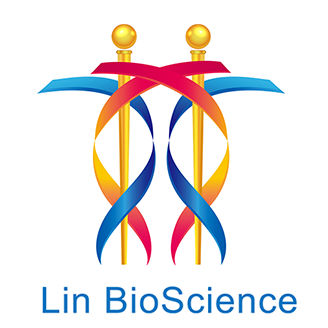预约演示
更新于:2025-05-07
CDC7
更新于:2025-05-07
基本信息
别名 CDC7、CDC7 (cell division cycle 7, S. cerevisiae, homolog)-like 1、CDC7 cell division cycle 7 (S. cerevisiae) + [9] |
简介 Kinase involved in initiation of DNA replication. Phosphorylates critical substrates that regulate the G1/S phase transition and initiation of DNA replication, such as MCM proteins and CLASPIN. |
关联
15
项与 CDC7 相关的药物靶点 |
作用机制 CDC7抑制剂 |
在研机构 |
非在研适应症- |
最高研发阶段临床1/2期 |
首次获批国家/地区- |
首次获批日期1800-01-20 |
靶点 |
作用机制 CDC7抑制剂 |
在研适应症 |
非在研适应症- |
最高研发阶段临床1期 |
首次获批国家/地区- |
首次获批日期1800-01-20 |
靶点 |
作用机制 CDC7抑制剂 |
非在研适应症- |
最高研发阶段临床1期 |
首次获批国家/地区- |
首次获批日期1800-01-20 |
12
项与 CDC7 相关的临床试验NCT05961839
A First-In-Human, Phase 1, Dose Escalation Study of SGR-2921 as Monotherapy In Subjects With Relapsed/Refractory Acute Myeloid Leukemia or Myelodysplastic Syndrome
The purpose of this study is to evaluate safety and tolerability and to determine the maximum tolerated dose (MTD) and/or recommended dose (RD) of SGR-2921.
开始日期2023-09-27 |
申办/合作机构 |
NCT05756322
A Phase 1/2, Open-label, Dose Escalation and Expansion Study to Evaluate the Safety and Tolerability of LBS-007 in Patients with Relapsed or Resistant Acute Leukaemias
The most common types of acute leukaemia are acute lymphoblastic leukaemia (ALL) and acute myeloid leukaemia (AML). AML is a heterogenous clonal disorder of haemopoietic progenitor cells and the most common and severe malignant leukemia in adults and is responsible for the highest mortality from leukemia. ALL is a neoplasm characterized by the growth of malignant lymphoblasts of the B or T lineage, leading to an inhibition of proliferation of the normal blood cell lineages.
The primary objectives of this study are investigating the safety, tolerability, and the MTD of LBS-007. The secondary objectives are to assess the efficacy and to determine the pharmacokinetics (PK) of LBS-007. The exploratory objective is to study and correlate the changes in surrogate biomarkers in response to treatment.
The primary objectives of this study are investigating the safety, tolerability, and the MTD of LBS-007. The secondary objectives are to assess the efficacy and to determine the pharmacokinetics (PK) of LBS-007. The exploratory objective is to study and correlate the changes in surrogate biomarkers in response to treatment.
开始日期2023-07-20 |
申办/合作机构 |
NCT05028218
A Phase I Study to Evaluate the Safety and Pharmacokinetics of TQB3824 in Subjects With Advanced Cancer
TQB3824 blocks function of a specific protein called Cell Division Cycle 7 (CDC7) kinase in the human body, which plays important roles in the maintenance of DNA replication forks and DNA damage response pathways. This study will evaluate the safety, tolerability and pharmacokinetics of TQB3824.
开始日期2021-08-31 |
申办/合作机构 |
100 项与 CDC7 相关的临床结果
登录后查看更多信息
100 项与 CDC7 相关的转化医学
登录后查看更多信息
0 项与 CDC7 相关的专利(医药)
登录后查看更多信息
565
项与 CDC7 相关的文献(医药)2025-06-01·Acta Histochemica
Immunohistochemistry and machine learning study of DNA replication-associated proteins in uterine epithelial tumors and precursor lesions
Article
作者: Ishii, Keiko ; Kimura, Fumikazu ; Ikehata, Koyo ; Ohshima, Kengo ; Urata, Takumi ; Yamaguchi, Masahiro
2025-05-01·Computers in Biology and Medicine
Pan-cancer analysis of CDC7 in human tumors: Integrative multi-omics insights and discovery of novel marine-based inhibitors through machine learning and computational approaches
Article
作者: Saif, Ahmed ; Ahasan Setu, Md Ali ; Rahman, Md Ajijur ; Raihan, Md Obayed ; Hossain, Mirza Mahfuj ; Aktaruzzaman, Md ; Al-Ghadi, Muath Q ; Islam, Md Tarikul ; Abdel-Daim, Mohamed M ; Albadrani, Ghadeer M ; Saleem, Rasha Mohammed ; Kamel, Mohamed ; Faridi, Hafeez ; Hasan, Al Riyad ; Yousefi, Niloofar
2025-05-01·European Journal of Medicinal Chemistry
Recent advances in CDC7 kinase inhibitors: Novel strategies for the treatment of cancers and neurodegenerative diseases
Review
作者: Peng, Xi ; Zhang, Yiwen ; Xiao, Yao ; Tang, Wentao ; Jiang, Yu ; Peng, Anjiao
44
项与 CDC7 相关的新闻(医药)2025-04-29
2025年4月,厦门宝太生物科技股份有限公司CDC7抑制剂BIOT-006正式获得美国食品药品监督管理局(FDA)的临床试验许可。此前,BIOT-006已于3月获得中国国家药品监督管理局(NMPA)临床试验默认许可,至此达成中美双报的重要里程碑。值得关注的是,目前全球范围内尚无针对CDC7靶点的抑制剂上市。作为宝太生物的战略合作伙伴,上海美迪西生物医药股份有限公司为BIOT-006的研发提供了从药物发现到IND申报的一站式临床前综合研发服务。这是继美迪西一站式助力宝太生物BIOT-001获中美双报双批后,双方合作达成的又一重要里程碑。肿瘤治疗新兴靶点CDC7全球尚无获批抑制剂上市CDC7是一种丝氨酸/苏氨酸激酶,参与DNA复制和细胞周期调控。研究发现,多种肿瘤细胞中CDC7和其调控蛋白DBF4均有过表达,提示其促进肿瘤发生发展的关键作用。抑制CDC7酶活性可显著减少肿瘤细胞S期复制叉建立,并导致p53依赖性的细胞凋亡,而正常细胞仅出现可逆性周期停滞(阻断S期进入),恢复CDC7功能后细胞活性不受影响。这种肿瘤选择性杀伤效应扩大了CDC7抑制剂的治疗窗口,使之成为极具潜力的抗肿瘤靶点。DBF4与CDC7结构和激活示意图[1]目前,全球范围内尚无针对CDC7靶点的抑制剂上市。据统计,全球共有13款CDC7抑制剂处于临床试验或临床前研究,其中7款处于临床阶段。宝太生物BIOT-T006中美双报双批,标志着其在该靶点的研发已跻身国际第一梯队。宝太生物BIOT-006多维优势构建全球竞争力BIOT-006是宝太生物自主研发的具有全新结构的、具有高选择性的CDC7抑制剂,通过抑制CDC7活性实现治疗晚期实体瘤的目的。临床前研究数据显示,BIOT-006展现出多重显著优势:精准调控:BIOT-006显著抑制CDC7下游通路蛋白磷酸化,并阻遏G2/M期进程,影响肿瘤细胞的细胞周期进程以抑制肿瘤细胞增殖,最终实现诱导肿瘤细胞凋亡的作用,实现抗肿瘤的作用。高活性抑制:BIOT-006对人胰腺癌和结肠癌细胞系表现出较为突出的活性抑制作用(IC50在10nM到50nM之间),在调控磷酸化水平、阻滞细胞周期和诱导细胞凋亡方面均表现出强于参照化合物TAK-931的活性。广谱抗肿瘤潜力:体内药效试验显示BIOT-006在人结直肠癌COLO205异种移植瘤模型、人胰腺癌PANC-1移植瘤模型上均表现出显著的抗肿瘤效果。作为一款极具潜力的创新药物,BIOT-006不仅是宝太生物创新研发实力的有力证明,更是肿瘤治疗领域的重要突破,有望为全球肿瘤患者带来全新的治疗选择,也再次印证了宝太生物与美迪西深度合作模式的显著成效与价值。MEDICILON从药物发现到IND申报美迪西一站式赋能肿瘤药物创新随着全球肿瘤发病率持续攀升与精准医疗技术的迭代升级,肿瘤药物市场正以超10%的年复合增长率高速扩容。在这一领域,美迪西已构建一站式临床前研发服务体系:一站式临床前服务:从药物发现、CMC研究到临床前研究(药效学、药代动力学、安全性评价),提供无缝衔接的一站式研发方案。截至2024年底,美迪西已为73个项目提供了全套IND申报服务。440+肿瘤药效模型:包括PDX模型、同种肿瘤移植模型、异种肿瘤移植模型、人源化肿瘤移植模型以及多药耐药模型等,可为ADC、PROTAC、CAR-T、TCR-T、CAR-NK、Oncolytic Virus、抗体、siRNA、AAV等药物提供药效评价服务。全球合规申报能力:依托2.9万㎡符合FDA、TGA、EMEA标准的GLP实验室,完成多物种(非人灵长类、犬、大小鼠等)毒理研究,确保申报资料满足国际规范,为未来全球开发奠定基础。520件IND赋能经验:其中,93件IND获得美国FDA、澳大利亚TGA、欧洲EMEA、韩国KFDA等监管机构批准后进入临床试验阶段。美迪西祝贺宝太生物BIOT-006获批临床,期待BIOT-006在临床试验中取得积极结果,早日为肿瘤患者提供全新治疗选择。美迪西将持续迭代一站式生物医药临床前创新服务平台,以前沿技术赋能创新,以严苛标准守护质量,助力更多中国原研新药加速迈向临床阶段,为全球医药创新注入中国力量。参考文献:[1]Dick SD, Federico S, Hughes SM, et al. Structural basis for the activation and target site specificity of CDC7 kinase[J]. Structure,2020, 28(8):954-962.e4.关于宝太生物厦门宝太生物科技股份有限公司是一家专业从事体外诊断试剂及仪器研发、生产、销售的国家高新技术企业,致力于荧光免疫、胶体金、化学发光、分子诊断、电化学等多项 POCT 精准诊断技术研究,公司高度重视研发创新,在上海、深圳、杭州、重庆及美国、新加坡等地均设立研发中心,目前已取得母婴健康、心脑血管、炎症、肿瘤检测等近百项产品医疗器械注册证书,同时,自主研发创新成果取得150 余项核心专利授权。自成立以来,公司业绩保持持续的快速增长,2018 年被评为中国POCT 产业最具综合实力 20强,先后获得了国家专精特新“小巨人”企业、中国制造业民营企业500强、国家高新技术企业、福建省优秀民营企业、福建省工业龙头企业、福建省民营企业100强、福建省制造业企业50强、福建省新型研发机构、福建省科技小巨人领军企业、福建省工业与信息化领域高成长企业等数十项荣誉资质及称号,产品远销60余个国家和地区,得到全球用户的青睐和认可。往期推荐美迪西助力恒瑞医药HRS-5817高效获批临床 ➠美迪西助力慕恩生物MNO-863活菌生物药获批临床 ➠美迪西助力元本生物YB-01实现中美双报双批 ➠美迪西助力纳安ADC药物T320中美澳三报获批 ➠美迪西助力泰尔康抗肿瘤蛋白偶联药物Tye1001中美双报双批 ➠美迪西助力美济医药口服紫杉醇软胶囊IND获批FDA ➠美迪西助力南京诺源1类新药培泰菁绿中美双报双批 ➠美迪西助力济民可信JM045缓释微球获批临床 ➠直播预告关于美迪西美迪西(股票代码:688202.SH)成立于2004年,总部位于上海,致力于为全球制药企业、研究机构及科研工作者提供全方位的临床前新药研究服务。美迪西的一站式综合服务以强有力的项目管理和更高效、高性价比的研发服务助力客户加速新药研发进程,服务涵盖医药临床前新药研究的全过程,包括药物发现、药学研究及临床前研究。至2024年底,美迪西已为全球超2000家客户提供药物研发服务,参与研发完成的新药及仿制药项目已有520件IND获批临床,与国内外优质客户共同成长。美迪西将继续立足全球视野,聚力中国创新,为人类健康贡献力量!
临床申请临床1期
2025-01-21
·小药说药
关注小药说药,一起成长!
前言
合成致死性是一种遗传现象,即单个基因缺陷与细胞存活相容,但两个基因的同时缺陷导致细胞死亡或细胞适应性受损。合成致死性提供了一个独特的机会,可以间接靶向以前被认为“难以成药”的蛋白质,包括携带功能丧失(LOF)突变的关键肿瘤抑制蛋白和由扩增或其他基因组改变引起的过表达致癌蛋白。这些与环境相关的相互作用是癌细胞固有和特异性的,因此提供了选择性靶向这些细胞的机会,同时保留了缺乏相关基因组背景的非癌细胞。
目前,PARP抑制剂已经在BRCA突变癌症患者中获得临床成功。在此推动下,针对DNA损伤反应途径中多种合成致死相互作用的新型药物正在临床开发中,针对跨越表观遗传、代谢和增殖途径改变的合成致死相互作用的合理策略也已出现,并进入临床前和早期临床试验阶段。
靶向合成致死相互作用
DNA损伤反应(DDR)网络可以保持基因组稳定性,抑制复制应激,保护受损的复制叉,并确保高保真DNA复制。DDR成分的遗传性和获得性细胞缺陷与基因组不稳定性的积累有关,导致肿瘤发生和癌症进展。同时,具有这些缺陷的细胞变得依赖于补偿DDR途径生存,从而为合成致命靶向创造了机会。
DNA损伤信号:靶向ATR、ATM和DNA-PK
ATR、ATM和CHK1激酶的抑制剂主要通过抑制必需的细胞周期检查点来利用细胞复制应激,导致过早进入有丝分裂和细胞死亡。ATR是一种丝氨酸/苏氨酸蛋白激酶,属于磷脂酰肌醇3-激酶相关激酶(PIKK)家族。当DNA发生损伤时,ATR被激活,并通过下游信号通路参与DNA损伤的检测、复制叉的稳定和损伤修复;激酶ATM通过调节DDR内下游激酶的活性和控制细胞周期检查点进程,在DNA双链断裂(DSB)的修复中起着关键作用;DNA-PK是另一种磷脂酰肌醇3-激酶相关激酶(PIKK),在DNA损伤部位充当邻近修复蛋白的蛋白质支架,在非同源末端连接(NHEJ)中起着关键作用。许多肿瘤细胞由于DNA修复通路的缺陷,高度依赖这些激酶途径来维持其生存和增殖。因此,ATR、ATM和DNA-PK抑制剂与这些缺陷相结合,可导致肿瘤细胞发生合成致死。
多种ATR抑制剂已处于临床开发中,包括berzosertib、ceralasterib、elimusertib、camonsertib、tuvusertib、ART0380、ATRN-119、ATG-018和IMP9064等;正在临床试验中测试的ATM抑制剂包括AZD1390和双重ATM和DNA-PK抑制剂XRD-0394和M4076,临床开发中的DNA-PK抑制剂包括AZD7648和peposertib。
DNA复制和细胞分裂:WEE1、PKMYT1、CDC7和PLK4
Wee样激酶1(WEE1)通过催化CDK1和CDK2在Tyr15位置的抑制性磷酸化来调节细胞周期通过G2/M和S检查点的进程。WEE1的抑制在G1/S失调的情况下是合成致死的,例如由CCNE1扩增或TP53突变引起的G1/S失调。正在临床试验中测试的WEE1抑制剂包括adavosertib、azenosertib、Debio 0123、IMP7068、SY-4835、SC0191和ATRN-W1051。
蛋白激酶,膜相关酪氨酸-苏氨酸1(PKMYT1)是一种细胞膜相关丝氨酸-苏氨酸蛋白激酶,也调节CDK1和G2/M检查点。功能基因组筛选的数据表明,PKMYT1失活与CCNE1扩增具有合成致死性。此外,除了CCNE1扩增,编码E3泛素连接酶FBXW7基因中的LOF突变和编码PP2A磷酸酶亚基PPP2R1A的基因也可通过PKMYT1抑制靶向。
细胞分裂周期7(CDC7)激酶在触发复制起点激活中起着重要作用。携带功能获得TP53突变的细胞依赖于CDC7依赖性DNA复制,这是由于与致癌转录因子MYB合作促进癌症细胞中的CDC7激活。在携带TP53突变的癌症细胞中,CDC7的药理学抑制诱导选择性衰老,而mTOR信号与CDC7联合抑制在促进凋亡细胞死亡方面非常有效。然而,尽管具有明显的临床前活性,但几种CDC7抑制剂(BMS-863233、TAK-931、NMS-1116354和LY3143921)在早期试验中未能显示出足够的疗效。
Polo 样激酶4(PLK4)是一种调节中心粒生物发生的激酶,中心粒是有丝分裂纺锤体组装和染色体分离所需的中心体的重要组成部分。中心粒周围的蛋白质是另一个关键的中心体成分,受E3泛素连接酶TRIM37的负调控。TRIM37的扩增(通常在神经母细胞瘤和乳腺癌中观察到)导致中心体物质耗竭,从而增加了对中心粒进行有丝分裂纺锤体组装的依赖,并使PLK4抑制在这种情况下成为一种有吸引力的治疗策略。目前,两种PLK4抑制剂CFI-400945和RP-1664正在临床试验中进行测试。
DNA修复:WRN、POLQ和USP1
POLQ和泛素特异性蛋白酶1(USP1)是携带BRCA1/2缺陷的癌症中临床相关的合成致死靶点。POLQ是一种广泛保守的DNA聚合酶,也是DSB修复过程中易出错的MMEJ途径的核心介体。来自几项试验的数据表明,POLQ抑制和BRCA1/2缺乏之间存在合成致死关系,这归因于癌症HRR缺陷(HRD)细胞对MMEJ
DNA修复的高度依赖性。测试各种POLQ抑制剂的早期试验正在进行中,包括ART4215、novobiocin、ART6043和GSK4524101,作为单一疗法或与各种PARP抑制剂联合使用。
USP1是一种去泛素酶,调节关键的范可尼贫血复合物和跨损伤合成底物,同时抑制NHEJ。在BRCA1缺陷细胞中,USP1在复制叉处特别活跃,其与叉DNA结合并被其激活,同时介导叉保护;抑制USP1会导致复制叉失稳、叉保护失败和细胞死亡。KSQ-4279是一种USP1抑制剂,目前正在I期试验中作为单一疗法或与PARP抑制剂或铂类化疗联合使用进行测试。
Werner综合征ATP-依赖性解旋酶(WRN)功能的丧失与癌细胞中的微卫星不稳定性-高(MSI-H)表型具有合成致死关系。WRN敲除已被证明会在MSI-H细胞中诱导广泛的DSBs、细胞周期失调、基因组不稳定和凋亡,但在体外微卫星稳定细胞中不会诱导。WRN抑制剂HRO761和RO7589831均已进入I期临床试验。
靶向合成致死代谢依赖性
代谢重编程是癌症的标志,肿瘤代谢的遗传或表观遗传改变,是调节细胞内自由基积累和维持肿瘤进展所需的生物合成和能量需求增加所必需的。甲硫基腺苷磷酸化酶(MTAP)缺失与PRMT5-MAT2A-RIOK1轴成分耗竭之间具有合成致死关系。MTAP的损失导致5′-甲硫腺苷(MTA)的积累,MTA本身通过竞争PRMT5
S-腺苷甲硫氨酸(SAM)结合袋,成为PRMT5的强效和选择性内源性抑制剂。因此,缺乏MTAP功能的细胞PRMT5甲基化水平降低,对进一步的PRMT5耗竭敏感,导致细胞生长抑制。目前正在临床试验中测试几种MTA协同PRMT5抑制剂,如AMG193、MRTX1719和TNG908,以及MAT2A抑制剂IDE397。
涉及代谢途径的合成致死相互作用还包括氨基酸和核酸代谢途径中的合成剂量致死性关系。例如,FLT3内部串联重复(FLT3-ITDs)是驱动因素,通过激活参与从头丝氨酸生物合成基因的转录因子4(ATF4)依赖性转录调控,赋予丝氨酸生物合成独特的代谢依赖性。在这种情况下,抑制丝氨酸生物合成中第一个也是唯一的限速酶磷酸甘油酸脱氢酶(PHGDH),使用PHGDH抑制剂WQ-2101在FLT3野生型细胞中亚致死的剂量,会导致凋亡诱导。与FLT3野生型细胞系相比,对携带FLT3-ITD突变的细胞系具有显著的抗增殖作用。
靶向表观遗传调控的合成致死策略
染色质调节过程的动态控制对细胞功能至关重要。在多达50%的癌症中检测到与读取、添加或删除表观遗传修饰以及影响染色质调节和组织有关的基因突变。SWI/SNF染色质重塑复合物(CRC)是四个ATP依赖性CRC家族之一,能够通过驱逐、动员或沉积核小体来改变染色质结构。编码SWI/SNF成分的基因突变大多导致功能丧失,在所有人类癌症中发生率高达20%。功能基因组筛查已证明SWI/SNF同源对SMARCA4-SMARCA2、ARID1A-ARID1B、SMARCA4-AMARCB1、SMARCA4-ARID2、SMARCA-4-ACTB和SMARCC1-SMARCC2之间存在合成致死相互作用。
作为表观遗传合成剂量致死性的另一个例子,研究发现SWI/SNF-BRG1-SMARCA4复合物在弥漫性中线胶质瘤患者中与H3K27M突变的表观遗传依赖性。SMARCA4与SOX10在H3K27M突变胶质瘤细胞的调节元件上共定位,以调节参与细胞增殖和细胞外基质的基因表达。H3K27M的功能缺失导致SMARCA4染色质在SOX10和H3K27乙酰化标记的增强子上的结合减少。使用靶向蛋白降解剂或小分子抑制剂靶向SMARCA4,在体外和体内模型中产生了抗肿瘤活性。
小结
合成致死作为一种新兴的肿瘤治疗策略,近年来备受关注。它基于两个非致死性基因同时受到抑制或干扰时,会导致细胞死亡的现象。合成致死的发现为癌症治疗提供了新的思路,推动了相关药物的开发。在合成致死策略中,PARP抑制剂是最成功的案例之一,PARP抑制剂通过抑制PARP的活性,导致DNA损伤无法修复,从而引起肿瘤细胞死亡。目前,PARP抑制剂已被批准用于治疗携带BRCA1或BRCA2基因突变的乳腺癌和卵巢癌。
除了PARP抑制剂,研究人员还在积极探索其他合成致死靶点,如ATR、PRMT5等。这些靶点的抑制剂在克服肿瘤耐药性、提高治疗效果方面显示出良好的潜力。与此同时,人们也正试图通过联合用药策略,如将PARP抑制剂与其他抗肿瘤药物联用,以提高治疗效果。总之,合成致死作为一种具有前景的肿瘤治疗策略,为癌症患者带来了新的希望。随着科研技术的不断发展,相信未来会有更多基于合成致死原理的新型抗肿瘤药物问世,为癌症治疗带来革命性的变革。
参考文献:
1.Synthetic lethal strategies for the
development of cancer therapeutics. Nat Rev Clin Oncol.2025 Jan;22(1):
公众号内回复“ADC”或扫描下方图片中的二维码免费下载《抗体偶联药物:从基础到临床》的PDF格式电子书!
公众号已建立“小药说药专业交流群”微信行业交流群以及读者交流群,扫描下方小编二维码加入,入行业群请主动告知姓名、工作单位和职务。
临床结果临床1期临床研究
2024-11-28
Fast Track designation indicates LBS-007’s potential in filling the unmet medical need of acute leukemia
LBS-007 is the Company’s investigational medicinal product for the treatment of acute leukemia
A Phase 1/2 trial in patients with relapsed or resistant acute leukemias is ongoing
LBS-007, the Company’s lead asset, has been granted orphan drug designations for acute myeloid leukemia and acute lymphocytic leukemia by the U.S. FDA
Nov. 27, 2024 -- Lin BioScience (6696. Taiwan OTC), a clinical-stage biopharmaceutical drug development company focused on advancing novel therapeutics targeting acute leukemia that have significant unmet medical needs, today announced that its lead pipeline, LBS-007, has been granted Fast Track Designation by the U.S. Food and Drug Administration (FDA) for the treatment of acute myeloid leukemia. Lin BioScience is currently conducting a phase 1/2 trial in patients with relapsed or resistant acute leukemias in the US, Australia, and Taiwan, and has been granted for orphan drug designation (ODD) for acute myeloid leukemia and acute lymphocytic leukemia by the U.S. FDA.
“We are thrilled to see LBS-007 showing signs of early treatment response and potential efficacy in addressing this critical unmet medical need,” said Dr. Tom Lin, Chairman of Lin BioScience. “Receiving FDA Fast Track Designation is a significant milestone, offering an expedited pathway to advance the development of this promising therapy. We remain deeply committed to delivering transformative solutions for patients in need.”
“During the phase 1 dose escalation, we have not observed any Definitely or Probably Related Adverse Effects in all patients who have received low to high doses, demonstrating the safety profile is very tolerable and promising,” said Dr. Irene Wang, President & CSO of Lin BioScience.
Fast Track is a process designed to facilitate the development, and expedite the review, of drugs to treat serious conditions and fill an unmet medical need. The purpose is to get important new drugs to the patient earlier. Fast Track addresses a broad range of serious conditions. Filling an unmet medical need is defined as providing a therapy where none exists or providing a therapy which may be potentially better than available therapies. Once a drug receives Fast Track designation, it is eligible for more frequent meetings with the FDA, more frequent written communication from the FDA, Accelerated Approval and Priority Review if relevant criteria are met, and Rolling Review. The frequency of communication assures that questions and issues are resolved quickly, often leading to earlier drug approval and access by patients.
LBS-007 is a natural, non-ATP cell cycle inhibitor targeting a broad array of cancers. LBS-007 functions by blocking the kinase activity of CDC7, a key regulator of the cancer cell cycle. Inhibiting CDC7 stops the proliferation of tumor cells and results in cancer cell death. LBS-007 has demonstrated very potent activity against leukemia and multiple solid tumors in preclinical studies.
Lin BioScience (6696. Taiwan OTC), founded in 2016, is a drug development company focused on unmet medical needs through developing first-in-class therapies for cancer, ophthalmology, and metabolic diseases. The Company currently has four primary drug candidates under development, including LBS-008 (for Geographic Atrophy [GA] in advanced dry age-related macular degeneration [AMD] and Stargardt Disease type 1 [STGD1]) and LBS-009 (for non-alcoholic steatohepatitis [NASH]), both developed by its subsidiary Belite Bio (NASDAQ: BLTE), as well as LBS-007 (for acute leukemia and solid tumors) and LBS-002 (for primary and metastatic brain cancers) developed by Lin BioScience.
Significantly, LBS-008 has been granted Orphan Drug Designation (ODD) for the treatment of STGD1 from the U.S. Food and Drug Administration (FDA), the European Medicines Agency (EMA), and the Pharmaceuticals and Medical Devices Agency (PMDA) in Japan. It has also received Fast Track Designation and Rare Pediatric Disease (RPD) designation from the U.S. FDA, along with Sakigake Designation from the Ministry of Health, Labour and Welfare (MHLW) in Japan. Additionally, LBS-007 has been granted ODD for the treatment of acute lymphoblastic leukemia (ALL) and acute myeloid leukemia (AML), as well as Fast Track Designation for the treatment of AML, from the U.S. FDA.
The content above comes from the network. if any infringement, please contact us to modify.
快速通道孤儿药
分析
对领域进行一次全面的分析。
登录
或

生物医药百科问答
全新生物医药AI Agent 覆盖科研全链路,让突破性发现快人一步
立即开始免费试用!
智慧芽新药情报库是智慧芽专为生命科学人士构建的基于AI的创新药情报平台,助您全方位提升您的研发与决策效率。
立即开始数据试用!
智慧芽新药库数据也通过智慧芽数据服务平台,以API或者数据包形式对外开放,助您更加充分利用智慧芽新药情报信息。
生物序列数据库
生物药研发创新
免费使用
化学结构数据库
小分子化药研发创新
免费使用




